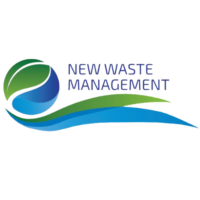As the world grapples with increasing waste generation, reducing municipal solid waste (MSW) has become a pressing goal for countries striving towards sustainability. By adopting innovative strategies and zero waste (ZW) principles, global leaders are setting benchmarks in waste reduction.
This edition explores key approaches, case studies, and actionable insights from nations at the forefront of waste minimisation, based on the paper “Towards Zero Waste: An In-Depth Analysis of National Policies, Strategies, and Case Studies in Waste Minimisation” [1]
🚨 The Challenges of MSW Management
Managing MSW effectively comes with significant challenges:
- Economic Disparities: Advanced economies focus on waste prevention and public knowledge, while lower-income countries often adopt low-tech solutions due to limited resources.
- Landfill Dependency: Despite the environmental consequences, many countries still rely on landfills for waste disposal.
- Complex Waste Streams: Non-recyclable plastics and hazardous materials add to the complexity of waste management.
These challenges highlight the need for innovative solutions that reduce waste, preserve resources, and limit environmental damage.
Global Leaders in Waste Reduction
1. The EU’s Waste Framework Directive
The EU Waste Framework Directive outlines a hierarchy for managing waste:
- Waste prevention.
- Preparation for reuse.
- Recycling.
- Recovery (e.g., waste-to-energy).
- Disposal (as a last resort).
By 2030, EU member states aim to recycle at least 65% of MSW while limiting landfill use to no more than 10%[1].
2. Sweden: Circular Economy Pioneer
- Landfill Ban: Sweden prohibits landfilling of organic and combustible waste. As a result, over 99% of MSW is either recycled or used for energy generation.
- “Stop Non-Recyclable Plastic” Programme: This initiative, known as “Stoppa Fulplasten,” encourages businesses to use recyclable plastics, reducing waste from non-recyclable materials[2].
- Vision Stockholm 2030: Stockholm has adopted resource efficiency as a core goal, making it a leader in sustainable waste management practices.
3. Germany: Circular Economy Leader
- Recycling Success: Germany achieves a recycling rate of over 60% for MSW and 90% for construction and demolition debris.
- Waste-to-Energy (WTE): Advanced facilities transform residual waste into energy, reducing reliance on landfills.
- Economic Impact: Germany’s waste management sector employs 200,000 people and generates €40 billion annually[3].
4. Singapore: Innovating with Limited Land
- Efficient Incineration: Singapore reduces MSW volume by 90% through incineration, preserving landfill space.
- Energy Recovery: WTE facilities provide 3% of the nation’s electricity.
- Green Plan 2030: Singapore’s target is to recycle 70% of all waste by 2030, reducing its reliance on incinerators[4].
5. Japan: Mastering Plastics Management
- High Recycling Rates: Japan recycles 85.8% of PET bottles, making it a global leader in plastics management[5].
- Public Awareness: Through initiatives like the 3Rs (Reduce, Reuse, Recycle) month in October, Japan fosters collaboration between businesses and consumers to minimise waste.
💡 What Can UK Councils Learn?
The success of these global leaders offers valuable lessons for the UK:
✅ Adopt Circular Economy Principles: Prioritise waste prevention, recycling, and energy recovery over landfill use.
✅ Invest in Advanced Infrastructure: Explore WTE technologies and upgrade recycling facilities to handle diverse waste streams.
✅ Encourage Public Engagement: Use education campaigns to promote sustainable behaviours and provide clear guidance on waste separation.
✅ Incentivise Change: Introduce pay-as-you-throw (PAYT) schemes to hold individuals accountable for waste generation.
📈 Building a Zero Waste Future
Achieving waste reduction targets requires innovation, collaboration, and commitment. By aligning with global best practices, UK councils can create efficient, sustainable waste management systems that benefit communities and the environment.
NWM Is Here to Help
At NWM(www.newwastemanagement.com), we specialise in crafting waste reduction strategies tailored to your council’s needs. From infrastructure upgrades to public education campaigns, we’ll help you implement solutions that work.
💡 Join us in building a zero-waste future! Contact us today to learn more about our innovative approaches to waste minimisation.
#wastemanagement #sustainability #Wastereduction
References:
[1] https://www.mdpi.com/2071-1050/16/22/10105?utm_source=chatgpt.com#B18-sustainability-16-10105
[2] https://www.c40.org/news/boston-stockholm-waste-declaration/
[3] https://www.sciencedirect.com/science/article/pii/S1878029616300901
[4] ink.springer.com/article/10.1007/s10163-016-0503-2
[5] https://www.jica.go.jp/english/activities/issues/env_manage/waste_manage_exp.html


